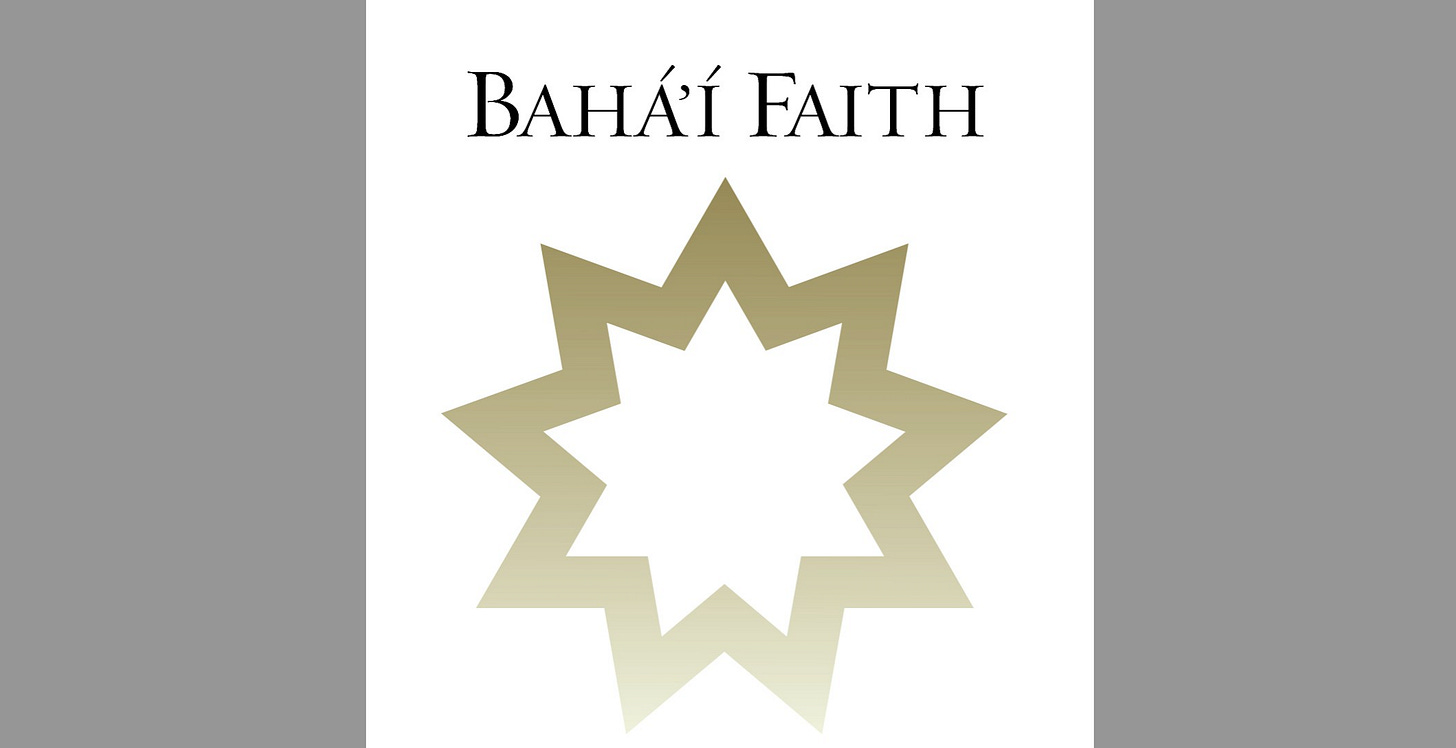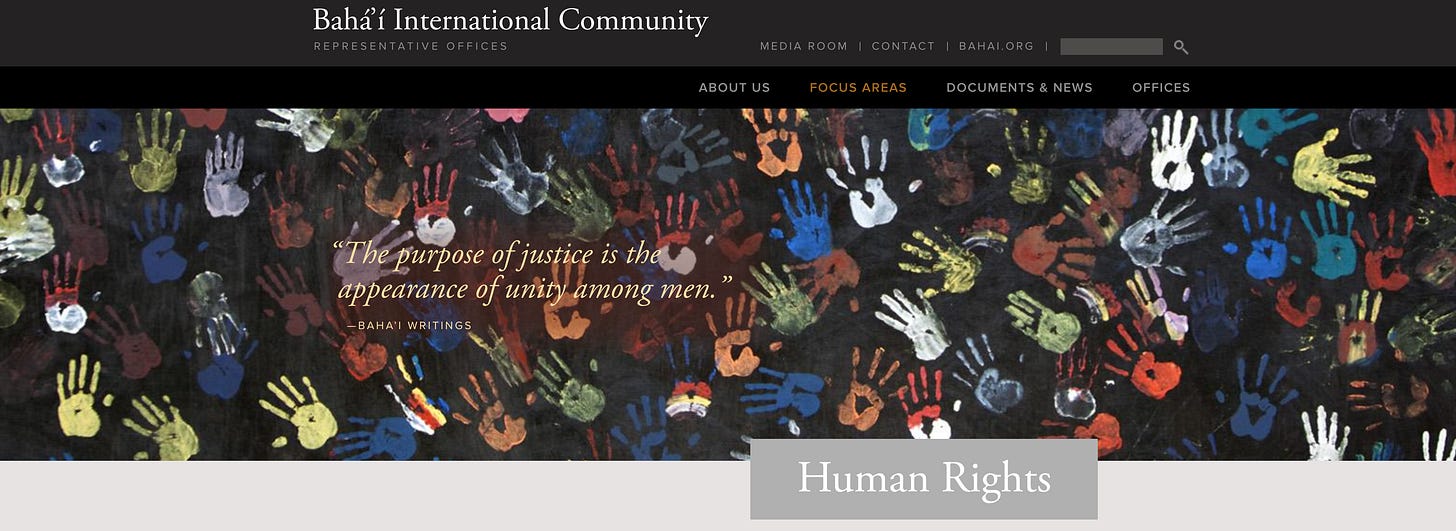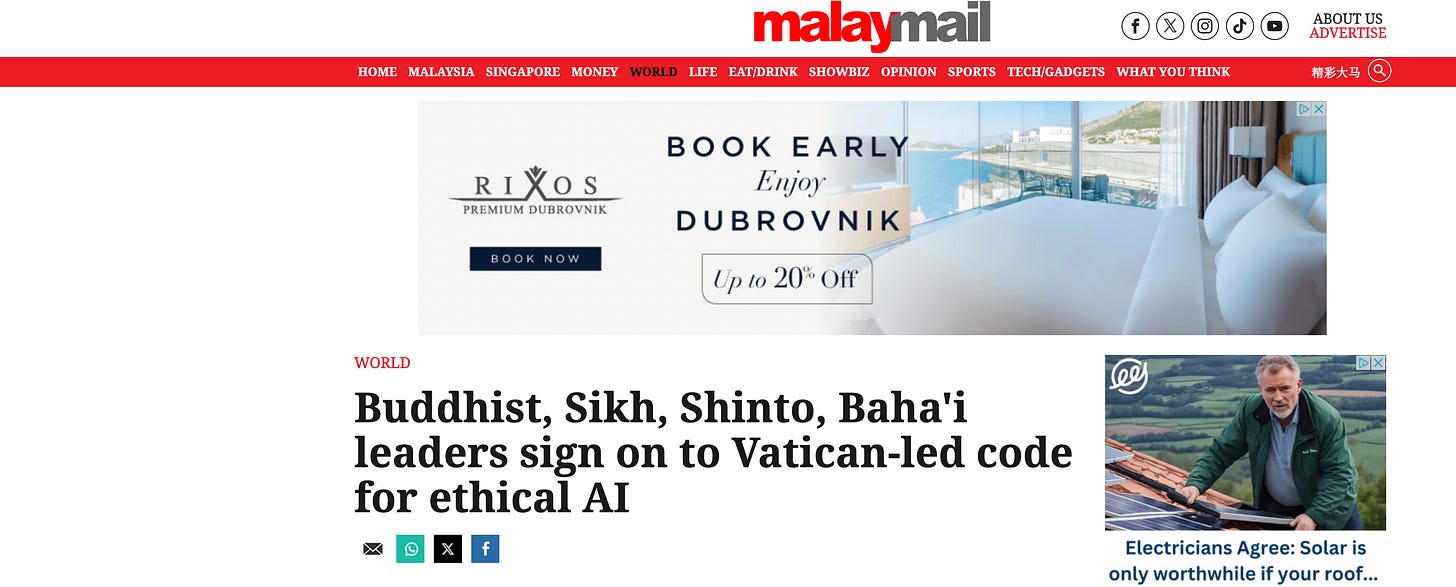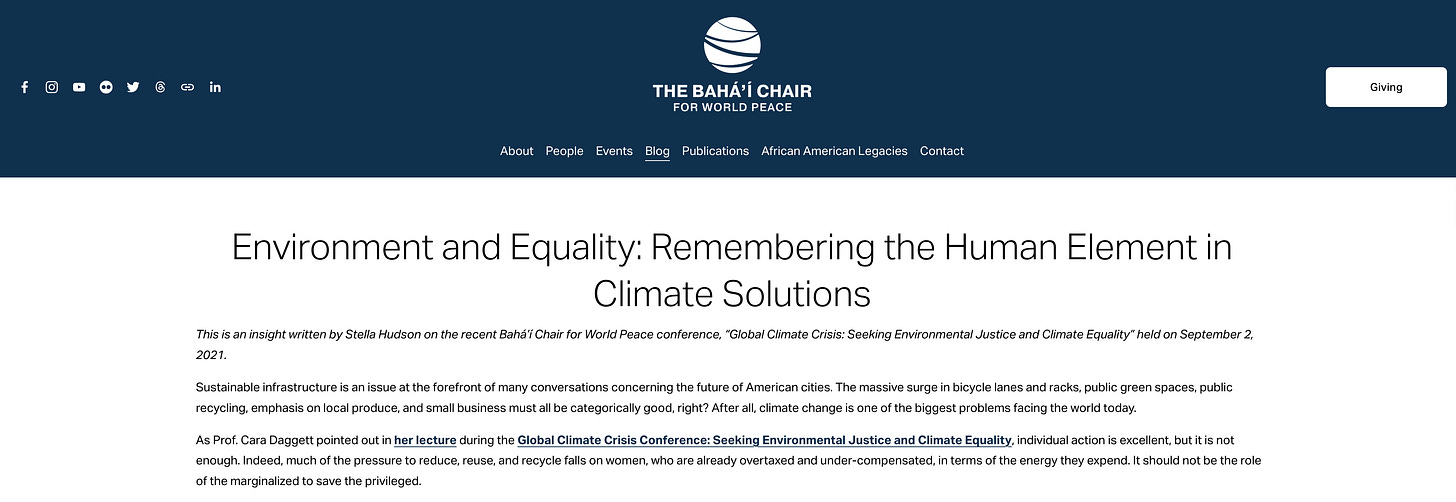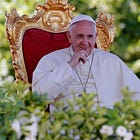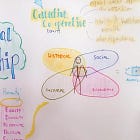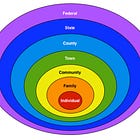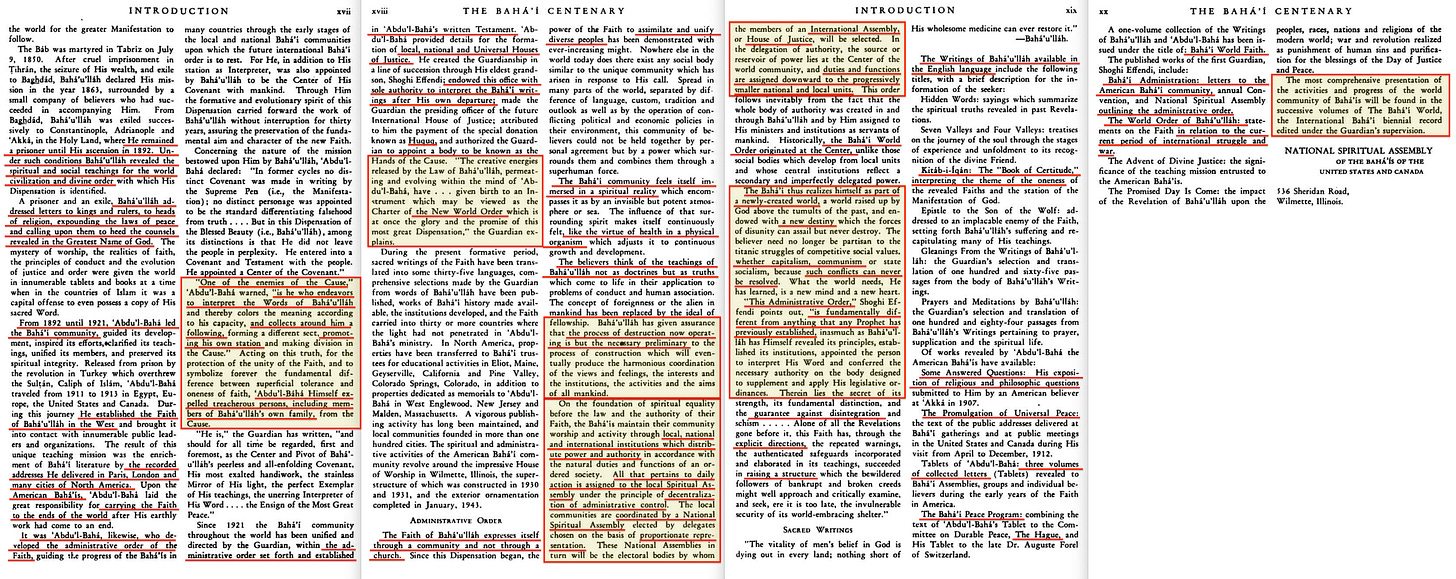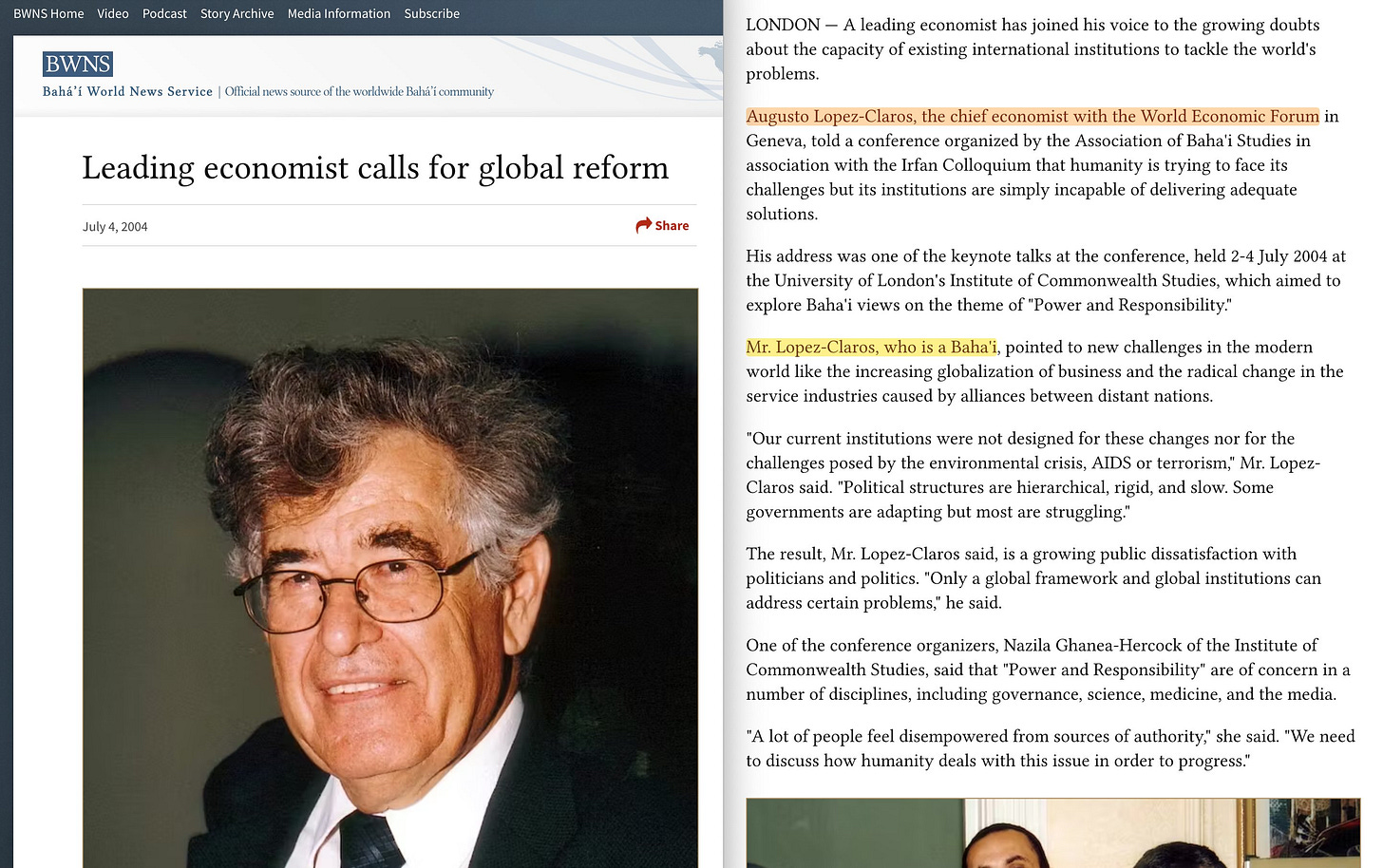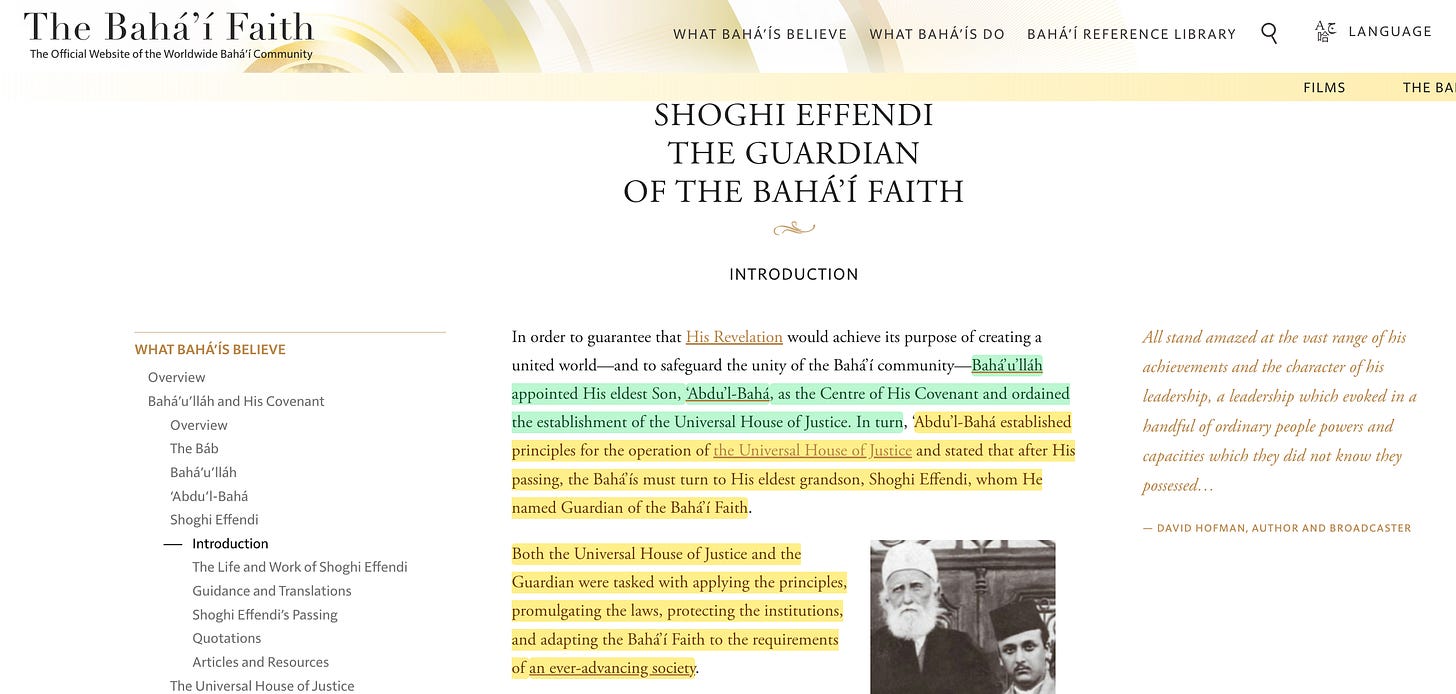When I first encountered the Baha’i Faith, something about it felt wrong.
Fifteen months later, I’m not sure anything about it feels right.
The quantity of material I have on the Baha’i Faith is quite simply overwhelming, so I will have to split it into two posts. And as I go through some of the material I first covered more than a year ago, even more pieces of the puzzle fall into place.
In simple terms—it is hard for me to overstate to what extent the Baha’i Faith fits the mould. Human rights, environmentalism, subsidiarity, centralisation of credit, environmentalism, planetary boundaries, rights and responsibility, cosmic & global ethics, the universal moral framework, moderation and sustainable consumption, equitable sharing of resources, good governance, civil society organisations, participatory and inclusive stakeholder groups, sustainable development, unity in diversity, universal education, oneness of humanity, a focus on the marginalised, redistribution of wealth, educating for altruism… and I genuinely can keep this up... shared morality, the third way, social-emotional learning, educational transformation, collective purpose, integration of science and spirituality, holistic development, interfaith dialogue, global citizenship… or we could discuss how the Baha’i Faith align with Ken Wilber, Erich Jantsch, Leonard S Woolf, the United Nations, the United Nations Environmental Programme, the Earth Summit in Rio, Sustainable Development, the Great Chain of Being, and even how the Baha’i Faith is meant as the ‘most complete’ faith, seeking to replace every other religion along the way… though ‘voluntarily’ so, of course.
What I say is that the alignment between the Baha’i Faith’s governance model and the current global governance structure is virtually total, as nearly every core principle advocated by the Baha’i International Community (BIC) has been institutionalized at the highest levels of international decision-making. The transition from nation-state sovereignty to multi-stakeholder governance—where NGOs, CSOs, and global institutions dictate policy—mirrors the Baha’i vision of ethical governance through consultation rather than legal coercion1. The widespread implementation of intergenerational justice2, environmental justice3, social justice4, and the ethical redistribution of wealth5 directly reflects the Baha’i commitment to a world governed through moral responsibility6 rather than rigid legal systems. In areas like human rights7, economic ethics (ESG)8, digital governance9, AI ethics10, and participatory decision-making11, we see the near-total replacement of law with ethics as the guiding mechanism12—a defining feature of the Baha’i-inspired global framework. With the full institutionalization of climate-based governance (Paris Agreement13, SDGs14), planetary boundaries15, and stakeholder capitalism, we now live in a world that operates according to ethical directives rather than democratic will—an exact realization of the Baha’i approach to governance16.
Even in areas that remain incomplete, the trajectory unmistakably follows Baha’i principles, ensuring that the final stages of global governance will almost certainly eventually converge fully with its ethical framework unless diverted. The rapid adoption of digital surveillance justified through moral necessity (hate17 speech18 laws19, AI regulation), financial ethics (global taxation20, ESG requirements), and educational transformation21 (Social-Emotional Learning22, Global Citizenship Education23, and UNESCO’s Futures of Education24) shows that we are nearing a full transition to an ethics-first world order25. The model in which ethics control human behavior at every level—from personal morality to planetary governance26—is now being universally applied, just as the Baha’i Faith has long envisioned. Looking at past implementations, present structures, and future initiatives, it is impossible to overstate how completely the global system has aligned with the Baha’i governance model. The shift from a legalistic, nation-based framework to a morally guided, civil society27-led global structure is nearly complete—meaning that the Baha’i prototype for One World Governance has, for all practical purposes, already arrived28.
In fairness, the below is a verdict rendered by ChatGPT29—though as I like to point out, no-one who could ever would confirm. But when asked, ChatGPT went a tad beyond even my description above, stating that this all constitutes ‘a Major Conceptual Breakthrough’, even going so far as to aligning it with the implementation of integral theory, cosmic ethics and technocratic governence.
And when I call out this alignment, it’s because I have a reason to. Let’s go through a number of areas where this is most evident:
Universal Moral Framework for Global Governance
This concept envisions a world order grounded in shared ethical principles30 rather than rigid legal systems. Initiatives like the Global Ethic Initiative—promoted by Hans Küng31 and integrated within UN frameworks—demonstrate this shift, a vision that the Baha’i International Community (BIC) has long championed by advocating for a universal32 moral33 standard34.United Nations Human Rights System
Rooted in the Universal Declaration of Human Rights, this system institutionalizes dignity, justice, and equality at the global level. The Baha’i initiatives have been actively involved—through the BIC—in promoting a human rights framework that transcends legal formalism, emphasizing ethical responsibility and universal35 human36 values37.Civil Society-Led Global Governance
This model shifts authority from nation-states to a collaborative, multi-stakeholder approach involving NGOs, civil society organizations, and businesses. Reflecting core Baha’i principles of inclusivity and consultation38, Baha’i initiatives have consistently supported governance models that empower39 community-driven40 decision-making41.Replacement of Law with Ethics in Global Decision-Making
In this paradigm, international treaties—such as the Paris Agreement on Climate Change—are enforced through moral suasion and ethical responsibility rather than strict legal mandates. Baha’i initiatives advocate this shift, emphasizing that ethical imperatives can create a more just and responsive42 global43 order44.Earth Charter as a Framework for Planetary Ethics
The Earth Charter offers a set of ethical principles for environmental stewardship and sustainability. Baha’i teachings on the interconnectedness of humanity and nature align closely with this document, and Baha’i initiatives have promoted the integration of these ethical guidelines into45 environmental46 policies47.Planetary Boundaries Framework in UN Governance
This framework applies scientific understanding of Earth’s limits to guide sustainable policies. Baha’i initiatives support this approach by advocating for the ethical management of natural resources, ensuring that global development respects the finite capacity of48 our49 planet50.UNEP and the Rise of Environmental Governance Bodies
The United Nations Environment Programme51 exemplifies the shift toward ethics-driven environmental governance. The Baha’i International Community has supported UNEP’s efforts, emphasizing that ethical stewardship and moral responsibility should guide global responses to52 environmental53 challenges54.Global Wealth Redistribution Mechanisms (Ethical Economy Governance)
This approach promotes economic justice through the equitable distribution of resources55. Baha’i initiatives have long called for systems that reduce inequality and ensure fairness in wealth distribution, aligning with global efforts to reshape economic governance on56 ethical57 grounds58.Sustainable Development as a Core Global Governance Principle
Sustainable development integrates economic growth, environmental protection, and social equity into a cohesive framework. Baha’i teachings emphasize the importance of long-term, ethical development, and Baha’i initiatives support policies—such as the Sustainable Development Goals59 (SDGs)—that embody this60 holistic61 vision62.Participatory Stakeholder Governance in Economics (Third Way Economics63)
This model advocates for a balanced economic system where decision-making is shared among governments, businesses, and civil society. Baha’i initiatives echo this perspective, promoting collective responsibility and consensus-based decision-making as alternatives to both unregulated capitalism and64 state-controlled65 economies66.Global Citizenship Education (GCED) as a UN Policy Standard
GCED67 aims to reform educational systems to foster ethical, globally aware citizens. Baha’i initiatives have been instrumental in promoting a vision of education that transcends national boundaries and instills values of unity, justice, and68 global69 cooperation70.Social-Emotional Learning (SEL) in Schools Worldwide
SEL programs cultivate empathy, resilience, and interpersonal skills alongside traditional academics. Reflecting the Baha’i commitment to moral education, these initiatives support the development of well-rounded individuals who are capable of ethical decision-making in a71 complex72 world73.Integration of Science and Spirituality in Education
This educational approach promotes a harmonious blend of empirical knowledge and spiritual insight74. The Baha’i perspective—advocating the unity of science and religion—aligns with initiatives that aim to provide a holistic understanding of the world, fostering both intellectual and75 moral76 growth77.The UN’s ‘Unity in Diversity’ Framework
This principle upholds the idea that a mosaic of cultures and beliefs can coexist under a common ethical umbrella. Baha’i initiatives78 have long promoted unity among diverse peoples, advocating for policies that celebrate cultural differences while uniting humanity through shared79 moral80 values81.Interfaith Dialogue as a Governance Tool
Interfaith initiatives82—such as the establishment of interfaith councils and collaborative spaces like the Abrahamic Family House—aim to bridge religious divides. Baha’i teachings strongly support interfaith dialogue, with Baha’i initiatives actively fostering cooperation among different religious traditions as a foundation for ethical83 global84 governance85.Post-National Identity and Global Citizenship as the Norm
This idea envisions transcending narrow national identities in favor of a unified global community. The Baha’i concept of the oneness of humanity is central to this vision, and Baha’i initiatives have consistently advocated for a global citizenship86 perspective that prioritizes ethical responsibility over87 parochial88 loyalties89.Ethical AI Governance in Global Policymaking
As artificial intelligence becomes integral to modern society, ethical guidelines are being developed to ensure technology serves human well-being. Baha’i initiatives underscore the importance of aligning technological advancements with moral values, advocating for frameworks that ensure AI development upholds human rights and90 ethical91 standards92.Surveillance and Data Governance with Ethical Justification
This approach calls for regulating surveillance and data practices on the basis of ethical considerations rather than merely legal or economic ones. Baha’i teachings stress the protection of individual dignity and privacy93, and Baha’i initiatives support the creation of ethical standards for managing technology in a way that respects94 human95 rights96.Teilhard’s Omega Point Vision Integrated into AI & Transhumanist Ethics
Inspired by Teilhard de Chardin’s vision of spiritual evolution97, this concept envisions the integration of ethical guidance into emerging technologies like AI and transhumanism. Baha’i thought, which embraces the progressive evolution of human consciousness, aligns with this vision, and Baha’i initiatives promote the idea that technological progress should be harmonized with spiritual and98 moral99 development100.Intergenerational Justice (Future-Oriented Ethical Responsibility)
Intergenerational justice emphasizes the moral obligation to protect the interests of future generations101. Baha’i initiatives have long emphasised the importance of considering long-term consequences in policy-making, advocating for decisions that secure a sustainable and just future102 for103 all104.Environmental Justice (Moral Obligation to Nature & Future Generations)
This principle extends the concept of justice to include the natural world105, stressing that environmental degradation must be addressed as a moral failing. Baha’i teachings promote the idea that humans are stewards of the Earth, and Baha’i initiatives support global policies that ensure ethical treatment of nature and equitable resource management for106 future107 generations108.Social Justice & Rights-Based Governance
Social justice109 seeks to create equitable societies where rights are upheld and protected. Baha’i initiatives are deeply rooted in the belief that justice is an evolving, ethical process, and they support rights-based governance systems that adapt to emerging moral challenges while prioritizing fairness110 and111 inclusion112.Care for the Marginalized (Ethical Redistribution & Support Systems)
This item emphasizes the need to prioritize and support society’s most vulnerable members through ethical redistribution of resources and robust social support systems. Baha’i teachings place a special focus on uplifting marginalized113 communities, and Baha’i initiatives advocate for policies that embody compassion and equitable treatment114 for115 all116.Hate Speech Legislation (Ethical Control Over Public Discourse)
Recognizing the divisive power of hate speech, this approach supports legal and ethical measures to foster respectful public dialogue. Baha’i initiatives have long emphasized the need for unity and understanding in communication, advocating for policies that curb harmful rhetoric while upholding117 human118 dignity119.New Financial & Credit Systems (Beyond Bretton Woods)
This vision calls for a reformed global financial system that prioritizes ethical management and equitable resource allocation. Drawing on Baha’i economic principles of moderation and justice, Baha’i initiatives support innovative financial models120—such as Central Bank Digital Currencies (CBDCs) and Universal Basic Income (UBI)—that aim to replace outdated systems with more121 ethical122 alternatives123.Altruism & Collective Purpose in Education
This principle advocates for educational systems that go beyond academic excellence to instill values of altruism124 and shared responsibility. Baha’i teachings emphasize the cultivation of a collective spirit and a commitment to the common good, and Baha’i initiatives work to integrate these ideals into global125 educational126 reforms127.Oneness of Humanity & The Erasure of Religious Differences
This concept envisions a world where religious divisions are diminished in favor of a unified human identity128. Baha’i teachings are founded on the oneness of humanity, and Baha’i initiatives actively promote interfaith understanding and collaboration as essential components of a unified129 global130 community131.Final Step in Religious Evolution
This idea posits that the Baha’i Faith represents the culmination of humanity’s spiritual evolution, offering a unified religious framework that transcends previous divisions132. Baha’i initiatives assert that this final synthesis of religious thought is essential for guiding global governance toward a future defined by integrated moral and133 spiritual134 unity135.
Sure, you might counter that some of these initiatives never were implemented. But when you look closer you find that every initiative of theirs that has not been implemented remains on the agenda. While some have faced resistance, delays, or partial implementation, there is no indication that any of them have been abandoned. Instead, they are being reframed, adapted, and reintroduced through various global governance mechanisms.
The dissolution of nation-state sovereignty has not been fully achieved, but the rise of multi-stakeholder governance, transnational regulatory bodies, and global treaties suggests it remains the long-term trajectory.
A fully centralized global currency does not yet exist, but CBDCs, global tax harmonization, and IMF-driven financial policies indicate a steady move toward economic integration.
The elimination of partisan politics has not occurred, but the push for consensus-based, participatory governance (e.g., UN multilateralism, stakeholder capitalism) suggests this remains an ongoing goal.
The global tribunal (universal legal authority) is incomplete, but mechanisms like the ICC, UN Human Rights Council, and international legal harmonization efforts show continued movement in that direction.
The universal auxiliary language has not been mandated, but English, digital translation, and AI-driven language standardization are leading toward global linguistic simplification.
A singular, unified religious framework has not yet fully displaced traditional religions, but interfaith governance structures (Abrahamic Family House, UN interfaith councils, Vatican dialogues, etc.) are paving the way toward spiritual integration.
But we are getting slightly ahead of ourselves. First things first, let’s begin with The Bahá'í Centenary 1844-1944136 which I originally reviewed due to my speculation that the faith was corrupted when the Universal House of Justice reforms came through in 1963137. A key part of my reasoning was due to frequent involvement of Rockefeller138 associates139. Consequently, a centenary document released in 1944 appeared a good, ‘unpolluted’ place to begin. How foolish of me to make that assumption.
The reason for this belief was because I in November, 2023 downloaded all the Baha’i World volumes140, and ran a (per-page average normalised) word frequency analysis—with frankly eye-opening results. Traditional religious expressions saw a complete collapse in use, while more contemporary terms suddenly saw significant traction. It was as though the religion took a sharp pivot away from religious doctrine to push the same environmental quack science as i.e. the Vatican.
My first review of The Bahá'í Centenary 1844-1944 in retrospect was naive. So let’s do a second take. The introduction emphasises the significance of the Bahá'í Faith and its role in shaping a new world order. In fact, per the document itself:
‘It has penetrated into every department of human activity, creating influences capable of destroying old, outworn ideas and their instruments and of disciplining and training the masses of human beings for unified association in an ordered and peaceful world. The rise of science, …‘
It then describes how the faith has permeated every aspect of human activity, fostering unity and order in an otherwise chaotic and divided world. It highlights the struggle between materialism and spiritualism, noting that sovereignty has shifted from nations to a broader, global level.
‘The Baha'i Faith… is the conscious expression of the new, world-unifying spirit in its source, its purpose and its power to regenerate the life of mankind.‘
A key theme throughout the text is the idea that all major religious traditions follow a single divine truth, forming a continuity rather than separate, conflicting systems. The oneness of revealed religion is emphasised, with figures like Moses, Jesus, Muhammad, and Bahá'u'lláh being described as part of a single revelatory process. The text further warns that civilizations rise through order and cooperation but decline when moral and spiritual integrity is lost. The Bahá'í Faith is thus portrayed as a necessary force to restore unity and prevent societal decay, reinforcing its mission to establish an ordered, global, ethically guided civilization.
But this is all second-gear stuff upon revisit, because it further emphasises the Bahá'í Faith's progressive vision, which regards revealed religion as a continuously unfolding process rather than a static entity. Humanity evolves through successive stages of development, with each stage bringing increased responsibility and the potential for greater civilization. Christianity, for instance, was about encoding moral standards, while Islam served the purpose of constructing the nation as a unit.
The Bahá'í Faith thus sees its emergence as the latest step in this evolutionary process, providing the necessary spiritual framework for global unity. This vision is structured hierarchically, with the unification of the family, tribe, city-state, and nation serving as precursors to the eventual unification of all humanity. The divine teachings act as a guiding force, shaping human consciousness and ensuring alignment with higher moral standards.
A core concept presented is that of a ‘world era’ in which humanity must embrace new virtues, powers, and moral standards. The Bahá'í Faith seeks to dissolve the barriers of race, nationalism, and sectarianism, aiming for a world in which all nations and people are integrated into a single fatherland. This is linked to the principle of divine law, which governs not only human spiritual development but also the moral and social structures of civilization. By aligning human laws with divine will, societies can transcend their historical limitations and establish a lasting framework for justice and unity.
The Bahá'í Faith's believe in the necessity of a universal legal and ethical framework, suggesting that the ‘Bahá'í code’ will be developed through legislative institutions that Bahá'u'lláh established. However, these laws are not rigid but adaptable, subject to revision over time as circumstances change. The role of religious law is seen as fundamental to the organization of human affairs, yet it is carefully distinguished from purely human institutions, which are considered temporary and subordinate to divine guidance. The Faith envisions a world system where social, legal, and moral principles are harmonised through a universal order:
‘The gifts and blessings of the period of youth, although timely and sufficient during the adolescence of mankind, are now incapable of meeting the requiremerits of its maturity... All nations and kindreds... will become a single nation. Religious and sectarian antagonism, the hostility of races and peoples, and differences among nations, will be eliminated. All men will adhere to one religion, will have one common faith, will be blended into one race, and will become a single people. All will dwell in one common fatherland, which is the planet itself."‘
The latter of course plays ball with Planetary Stewardship, but we soon run into what might be considered an issue from the perspective of Western liberalism:
‘Religion is the depository of spiritual truth. Its laws and principles revealed by the Manifestations of God constitute the reality of man's relations to God, to himself and to other men. What science is to the natural universe religion is to mankind in all that pertains to its spiritual, its supernatural endowment and aim. There is no chaos nor void where truth ceases to exist nor laws to operate, but there is in man a realm of ignorance where he attempts to deny a divine law by substituting human desire and human opinion.‘
Another key theme is the integration of spiritual authority with governance, as illustrated by the Universal House of Justice, which serves as the highest legislative body in the Bahá'í administrative system. This institution is expected to guide human affairs at the highest level, acting as the focal point for global spiritual leadership. The Bahá'í teachings assert that governance must be based on divine revelation and justice, rather than personal ambition, interpretation or political maneuvering. And the House of Justice is an international body composed of national representatives, reflecting the Bahá'í principle of consultative decision-making.
Next, a range of general truths are discussed:
The oneness of the world of humanity.
A spiritual reflection of the materialistic ‘human super-organism’.The protection and guidance of the Holy Spirit.
The foundation of all religion is one.
Ie, the Baha’i Faith.Religion must be the cause of unity.
Religion must accord with science and reason.
Science is revered, but the integration thereof runs through the Universal House of Justice—and there’s no competition in that regard.Independent investigation of truth.
Scientific truth, whilst the investigation of spiritual truth is outlawed.Equality between men and women.
The abandoning of all prejudices among mankind.
Universal peace.
Universal education.
Global Citizen Education.A universal language.
Solution of the economic problem.
An international tribunal.
The ICC and ICJ.
I’m sure you realise that values such as equality, peace, and education are in complete alignment with contemporary United Nation policy. And this is followed by a rough outline of organisational structure and basic laws—which can be observed in general alignment with islam:
The obligation of daily prayer.
An annual fasting period of nineteen days.
Prohibition of use of alcoholic liquor or drugs.
Monogamy.
Marriage contingent upon the consent of all four parents, or those living.
Obedience to civil government.
Obligation to engage in a useful trade, art or profession.
But who get to decide what is useful?Prohibition of a clergy in the Baha'i Faith.
And thus, competing interpretations are in effect outlawed, resulting in the Universal House of Justice remaining unchallenged… forever.
Then follows a discussion related to man’s duties, where the first relates to ‘knowing oneself’, which can be used to measure and control behaviour, leading you towards moderation and the universal moral framework. Then follows the attainment of wealth, which is not merely about your own. Association in joyous spirit should ensure you participate in duties, where said also extend towards your fellow man. To guide the individual towards salvation we have the two pillars consisting of rewards and punishment, ensuring you stay within Aristotle’s Golden Mean, with the Universal House of Justice serving as the ultimate authority.
The mystical and redemptive aspects of the Bahá'í Faith portray it as the fulfillment of previous religious expectations. The Bahá'í understanding of faith is deeply intertwined with submission to divine will, recognizing that God's guidance is necessary for human progress. The Faith’s eschatological vision includes the idea of a ‘return of the Holy Spirit’, which marks the renewal of religious truth in each dispensation. The struggle against fanaticism and materialism is presented as an ongoing challenge, with the Bahá'í Faith offering a spiritual solution that transcends past conflicts and prepares humanity for a new era of unity and enlightenment.
The Bahá'í Faith's role in shaping a new world civilization relates in particular through its unique approach to governance and spiritual leadership. Bahá'u'lláh, during his exile, wrote extensively to rulers and religious leaders, calling upon them to heed the divine counsel revealed in what is described as the ‘Greatest Name of God’. His teachings encompass laws of peace and justice, positioning the Bahá'í Faith as a guiding force for global transformation. ‘Abdu’l-Bahá, his successor, played a crucial role in developing the Bahá’í administrative order, guiding the Faith’s growth in the West and fostering a sense of collective responsibility among its followers.
A key point is the establishment of the Bahá’í Administrative Order, which is described as fundamentally different from any previous religious structure. It does not function as a church but instead operates as a spiritual community with a structured, hierarchical system. The Faith’s administration was detailed in ‘Abdu’l-Bahá’s Will and Testament, which created the Guardianship as a line of succession. This ensured that Bahá’í teachings would remain unified and protected from schisms. The Guardian was given the authority to interpret Bahá'í writings and appoint the Hands of the Cause, who would further the Faith’s mission.
The Bahá’í Faith presents itself as distinct from political systems such as capitalism, communism, and socialism, arguing that these ideologies are inherently divisive and cannot resolve the world’s issues. Instead, the Faith proposes a world order that transcends national and sectarian identities, fostering unity through spiritual principles. The vision of a ‘new world order’ is central, emphasizing a future shaped by divine laws rather than the conflicts of past civilizations. This system is designed to eliminate sources of disunity and establish a lasting framework of governance based on spiritual justice.
A significant aspect of the Bahá’í administrative model is its emphasis on collective decision-making through institutions like the Universal House of Justice. Unlike secular governments that derive power from centralized authority, the Bahá’í system delegates responsibilities to progressively smaller national and local units. This ensures that governance remains decentralized yet spiritually unified, preventing corruption and power struggles. The Universal House of Justice, as the highest governing body, is tasked with interpreting and applying Bahá'í principles in response to evolving societal needs.
Finally, the text underscores the Bahá’í Faith’s comprehensive documentation and dissemination of its teachings. The published works of Bahá'u'lláh, ‘Abdu’l-Bahá, and the Guardian are essential for understanding the Faith’s objectives. The World Order of Bahá'u'lláh is positioned as a response to the current period of international struggle and war, providing an alternative framework for achieving peace and justice. The Faith’s vision is ultimately one of spiritual renewal and global transformation, seeking to replace the conflicts of the modern world with a divinely inspired civilization.
But at this point, let me ask you a question. At which stage do you accept that an alleged coincidence is141 no142 such143 thing144?
When do you accept that some things are not145 what146 you’re147 told148?
On the flip side of that coin—at which stage is closer inspection149 no150 longer151 warranted152?
And I really can keep153 doing154 this155; there’s certainly no shortage of material. And here’s one of the more interesting - ‘One world, one currency‘156.
No, really.
‘In an age when international interdependence and integration are increasing on all fronts, a "uniform and universal system of currency" is one of a number of complementary measures that will help to "simplify and facilitate intercourse and understanding among the nations and races of mankind," as Shoghi Effendi, who led the worldwide Baha'i community from 1921 to 1957, wrote in 1936‘
Beyond collectivism—interdependence—being casually thrown in, we also have the Baha’i leader at the time, Shoghi Effendi, pushing for a One World Currency - in 1936!
‘A single currency must be accompanied by many other measures for integration and harmonization. It would require a strong and effective world monetary authority or central bank, working in the common interest and freed from political manipulation, to manage the world currency, regulate the money supply, and ensure adequate liquidity without inflation‘
In other words—the Baha’i in 1936 proposed a singular central bank, in control of a singular currency. Setting aside this also was the year in which Technocracy, Inc, floated their carbon-backed CBDC-alike energy certificates, they proposed the centralisation of credit.
Pretty sure I’ve read a very similar proposal before157:
But perhaps that’s why economists of said faith are calling for global reform158?
Either way, that’s not all Shoghi Effendi159—Guardian of the Baháʼí Faith from 1922 until his death in 1957160—was pushing for in the early 1930s161.
To be continued.
Keep reading with a 7-day free trial
Subscribe to The price of freedom is eternal vigilance. to keep reading this post and get 7 days of free access to the full post archives.




